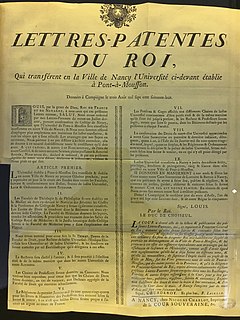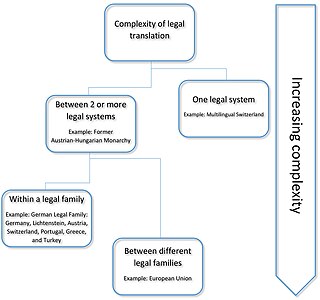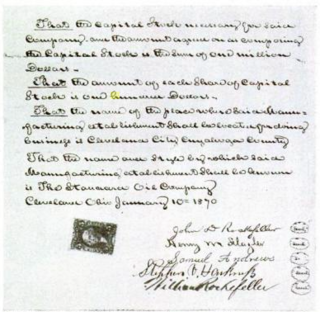Related Research Articles

The Delaware General Corporation Law is the statute governing corporate law in the U.S. state of Delaware. Adopted in 1899, the statute has since made Delaware the most important jurisdiction in United States corporate law. Delaware is considered a corporate haven because of its business-friendly corporate laws compared to most other U.S. states. Over half of publicly traded corporations listed in the New York Stock Exchange and 66% of the Fortune 500 are incorporated in the state.

The law of Ireland consists of constitutional, statute and common law. The highest law in the State is the Constitution of Ireland, from which all other law derives its authority. The Republic has a common-law legal system with a written constitution that provides for a parliamentary democracy based on the British parliamentary system, albeit with a popularly elected president, a separation of powers, a developed system of constitutional rights and judicial review of primary legislation.

Law French is an archaic language originally based on Old Norman and Anglo-Norman, but increasingly influenced by Parisian French and, later, English. It was used in the law courts of England, beginning with the Norman conquest of England in 1066. Its use continued for several centuries in the courts of England and Wales and Ireland. Although Law French as a narrative legal language is obsolete, many individual Law French terms continue to be used by lawyers and judges in common law jurisdictions.

Letters patent are a type of legal instrument in the form of a published written order issued by a monarch, president, or other head of state, generally granting an office, right, monopoly, title, or status to a person or corporation. Letters patent can be used for the creation of corporations or government offices, or for granting city status or a coat of arms. Letters patent are issued for the appointment of representatives of the Crown, such as governors and governors-general of Commonwealth realms, as well as appointing a Royal Commission. In the United Kingdom they are also issued for the creation of peers of the realm.

A charter is the grant of authority or rights, stating that the granter formally recognizes the prerogative of the recipient to exercise the rights specified. It is implicit that the granter retains superiority, and that the recipient admits a limited status within the relationship, and it is within that sense that charters were historically granted, and it is that sense which is retained in modern usage of the term.

A joint-stock company is a business entity in which shares of the company's stock can be bought and sold by shareholders. Each shareholder owns company stock in proportion, evidenced by their shares. Shareholders are able to transfer their shares to others without any effects to the continued existence of the company.
A foundation is a category of nonprofit organization or charitable trust that typically provides funding and support for other charitable organizations through grants, but may also engage directly in charitable activities. Foundations include public charitable foundations, such as community foundations, and private foundation, which are typically endowed by an individual or family. However, the term "foundation" may also be used by organizations that are not involved in public grantmaking.

Legal translation is the translation of language used in legal settings and for legal purposes. Legal translation may also imply that it is a specific type of translation only used in law, which is not always the case. As law is a culture-dependent subject field, legal translation is not necessarily linguistically transparent. Intransparency in translation can be avoided somewhat by use of Latin legal terminology, where possible, but in non-western languages debates are centered on the origins and precedents of specific terms, such as in the use of particular Chinese characters in Japanese legal discussions.

In corporate governance, a company's articles of association is a document which, along with the memorandum of association form the company's constitution, and defines the responsibilities of the directors, the kind of business to be undertaken, and the means by which the shareholders exert control over the board of directors.
Halsbury's Statutes of England and Wales provides updated texts of every Public General Act of the Parliament of the United Kingdom, Measure of the Welsh Assembly, or Church of England Measure currently in force in England and Wales, as well as a number of private and local Acts, with detailed annotations to each section and Schedule of each Act. It incorporates the effects of new Acts of Parliament and secondary legislation into existing legislation to provide a consolidated "as amended" text of the current statute book.

Salomon v A Salomon & Co Ltd[1896] UKHL 1, [1897] AC 22 is a landmark UK company law case. The effect of the House of Lords' unanimous ruling was to uphold firmly the doctrine of corporate personality, as set out in the Companies Act 1862, so that creditors of an insolvent company could not sue the company's shareholders for payment of outstanding debts.

The Statutes of Canada (SC) compiles, by year, all the laws passed by the Parliament of Canada since Confederation in 1867. The Revised Statutes of Canada (RSC) consolidates current federal laws in force, incorporating amendments into acts, adding new substantive acts enacted since the last revision and deleting rescinded acts. Thus far there have been six revisions: in 1886, 1906, 1927, 1952, 1970, and 1985. The Statutes of Canada are its own legal code. They are the federal legal code of Canada that contains the federal laws and statutes enacted by the Parliament of Canada, and are enacted into their own unified code. The Statutes of Canada are organized by alphabetical order and are updated and amended by the Government of Canada from time to time.
Legal English is the type of English as used in legal writing. In general, a legal language is a formalized language based on logic rules which differs from the ordinary natural language in vocabulary, morphology, syntax, and semantics, as well as other linguistic features, aimed to achieve consistency, validity, completeness and soundness, while keeping the benefits of a human-like language such as intuitive execution, complete meaning and open upgrade. However, Legal English has been referred to as a "sublanguage", as legal English differs from ordinary English. A specialized use of certain terms and linguistic patterns governs the teaching of legal language. Thus, "we study legal language as a kind of second language, a specialized use of vocabulary, phrases, and syntax that helps us to communicate more easily with each other".
Corporate services or business services are activities which combine or consolidate certain enterprise-wide needed support services, provided based on specialized knowledge, best practices, and technology to serve internal customers and business partners. The term corporate services providers (CSPs) is also used.
The Interpretation Act 1978 is an Act of the Parliament of the United Kingdom. The Act makes provision for the interpretation of Acts of Parliament, Measures of the General Synod of the Church of England, Measures of the Church Assembly, subordinate legislation, "deeds and other instruments and documents," Acts of the Scottish Parliament and instruments made thereunder, and Measures and Acts of the National Assembly for Wales and instruments made thereunder. The Act makes provision in relation to: the construction of certain words and phrases, words of enactment, amendment or repeal of Acts in the Session they were passed, judicial notice, commencement, statutory powers and duties, the effect of repeals, and duplicated offences.

The Pleading in English Act 1362, often rendered Statute of Pleading, was an Act of the Parliament of England. The Act complained that because the Norman French language was largely unknown to the common people of England, they had no knowledge of what was being said for or against them in the courts, which used Law French. The Act therefore stipulated that "all Pleas which shall be pleaded in [any] Courts whatsoever, before any of his Justices whatsoever, or in his other Places, or before any of His other Ministers whatsoever, or in the Courts and Places of any other Lords whatsoever within the Realm, shall be pleaded, shewed, defended, answered, debated, and judged in the English language, and that they be entered and inrolled in Latin".
Legal practice is sometimes used to distinguish the body of judicial or administrative precedents, rules, policies, customs, and doctrines from legislative enactments such as statutes and constitutions which might be called "laws" in the strict sense of being commands to the general public, rather than only to a set of parties.
Cooper Manufacturing Co. v. Ferguson, 113 U.S. 727 (1885), was a suit regarding the legitimacy of a sale of a steam engine and other machinery in the State of Ohio.
This collection of lists of law topics collects the names of topics related to law. Everything related to law, even quite remotely, should be included on the alphabetical list, and on the appropriate topic lists. All links on topical lists should also appear in the main alphabetical listing. The process of creating lists is ongoing – these lists are neither complete nor up-to-date – if you see an article that should be listed but is not, please update the lists accordingly. You may also want to include Wikiproject Law talk page banners on the relevant pages.

In the United States, a benefit corporation is a type of for-profit corporate entity, authorized by 35 U.S. states and the District of Columbia, that includes positive impact on society, workers, the community and the environment in addition to profit as its legally defined goals, in that the definition of "best interest of the corporation" is specified to include those impacts. Laws concerning conventional corporations typically do not specify the definition of "best interest of the corporation", which has led to the interpretation that increasing shareholder value is the only overarching or compelling interest of a corporation. Benefit corporations may not differ much from traditional C corporations. A C corporation may change to a B corporation merely by stating in its approved corporate bylaws that it is a benefit corporation; however in certain jurisdictions, the terms "public benefit corporation" or "PBC" are also required to be in the legal name of B corporations.
References
- ↑ Hill, Gerald N.; Hill, Kathleen (2002). The people's law dictionary : taking the mystery out of legal language. New York, NY: MJF Books. ISBN 9781567315530.